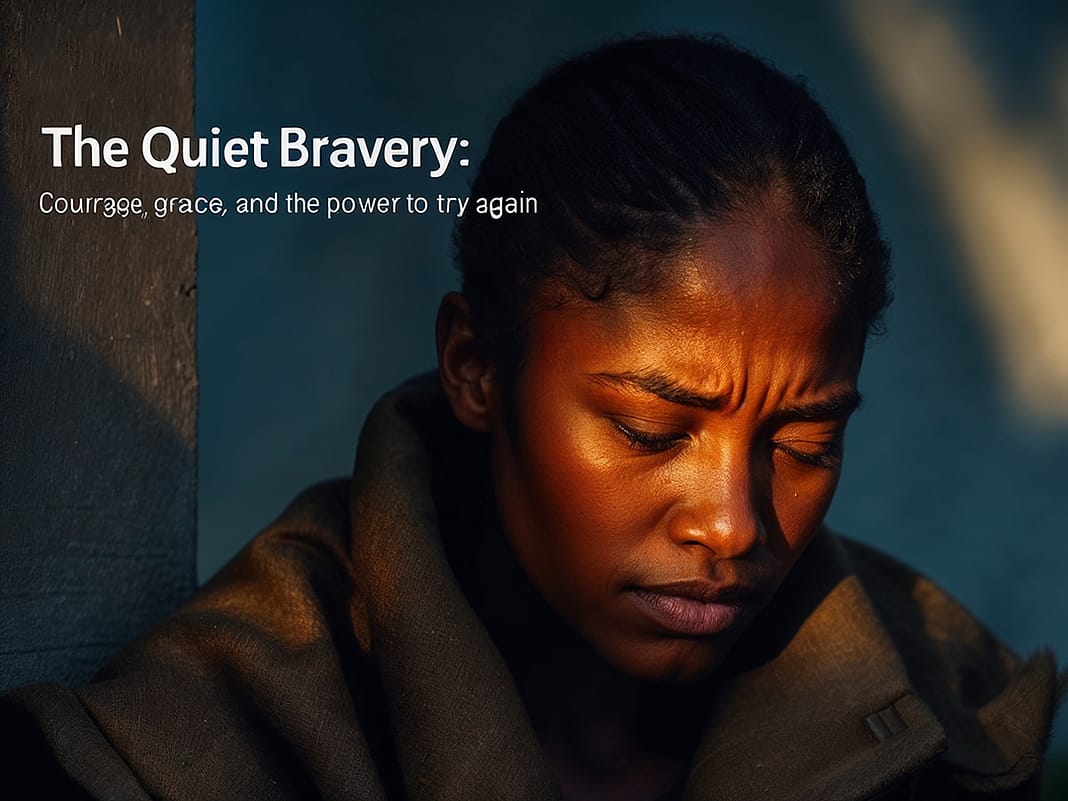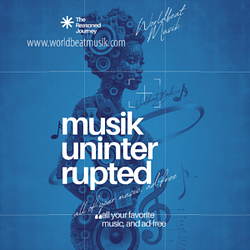Courage does not always announce itself with a roar. It does not always come charging in like a storm. Sometimes, it is the quietest whisper in the night, the delicate flutter of a voice that says, “I will try again tomorrow.” There is a strength in this quiet resolve that cannot be measured by accolades or applause. This courage lives in the deep chambers of the soul, where the only witness is yourself. It does not seek approval. It does not ask to be seen.
In a world that is often too loud, too quick to demand perfection, where mistakes can feel like failures, and where vulnerability is mistaken for weakness, we need to reconsider our understanding of what it means to be brave. This is the kind of courage that Mary Anne Radmacher speaks of, and in these moments, we give ourselves grace—not just to succeed, but to fail as well.
The Weight of Trying Again
To stand in the quiet aftermath of failure or disappointment, and to say that you will try again, is an act of profound bravery. In a culture that tells us we must always be strong, that we must always win, it can feel impossible to offer ourselves kindness when we stumble. Yet, this very grace we extend to ourselves is the essence of courage—acknowledging our imperfection, allowing room for mistakes, and still showing up.
It’s in this delicate, tender place that we find the truth: the courage to keep moving forward is not always loud. It is, as Mary Anne Radmacher said, that “quiet voice” reminding you that you can start over. In the same breath, it’s a reminder that the moments of our greatest growth are often not the ones that glitter with success but the ones that feel heavy with the weight of trying again.
Vulnerability as Strength
It’s easy to mistake vulnerability for fragility, to believe that to be vulnerable is to be weak. But in reality, to be vulnerable is to reveal your deepest humanity. And is that not the bravest thing we can do? To allow ourselves to be seen, to admit when we don’t have all the answers, to acknowledge that sometimes, we are afraid?
There is an honesty in vulnerability. It is the raw and unpolished mirror that reflects both our beauty and our brokenness. The notion that courage requires us to hide those parts of ourselves is false. The bravest among us are not those who never fall, but those who fall and rise again, admitting that they fell in the first place.
We need grace in those moments—the grace to acknowledge our vulnerability without shame. The grace to admit that courage is sometimes quiet, sometimes messy, and often invisible to the outside world. There are no parades for the courage of the everyday, yet it is this kind of courage that sustains us, that moves us forward, even when we are tired, even when we have failed.
Embracing Failure as Growth
What if we began to see failure not as the end but as the beginning of something new? What if we understood that failure is not a reflection of our worth but a signpost on the journey of becoming? Carol Dweck’s growth mindset tells us that our abilities are not fixed, and that we are capable of growth through effort, perseverance, and learning from failure. Radmacher’s concept of giving ourselves the grace to fail and try again resonates deeply with this idea.
When we embrace failure as a necessary part of growth, we free ourselves from the crippling fear of making mistakes. We allow ourselves the grace to learn. Courage, then, becomes not about succeeding, but about persisting. It becomes about picking ourselves up, not because the world expects it, but because we trust that each step forward, no matter how small, is a step toward something better.
The courage to try again, despite the risk of failure, requires self-compassion. It requires the quiet understanding that our mistakes do not define us. It is an invitation to give ourselves permission to grow, to change, to stumble, and to rise once more.
Resilience Through Grace
The Stoics would tell us that there is power in accepting what we cannot control. Life will hand us difficulties, heartbreaks, and obstacles. We cannot stop these things from happening, but we can choose how we respond. Marcus Aurelius believed that real strength comes from within—our ability to maintain composure and act with integrity, regardless of the external storms.
In this way, resilience is an act of grace. It is not about pushing through without feeling, but about recognizing that within every struggle, there is a quiet power in how we treat ourselves. There is grace in allowing ourselves to feel the weight of our burdens without succumbing to them. This grace is what Radmacher speaks of, the grace to fail and succeed, to break and rebuild, to fall and rise. Resilience is born not from avoiding pain but from meeting it with a quiet, unshakable resolve.
The Quiet Heroism of Every Day
The world often celebrates bold, outward acts of heroism. But what of the quiet, unseen acts of courage? What of the mother who wakes up early every day to care for her children, despite her exhaustion? What of the artist who continues to create, even when the world doesn’t recognize their work? What of the person who chooses to show up for therapy, confronting their inner demons, knowing that healing is a long and difficult road?
These are the quiet acts of courage that don’t make headlines. They are not the loud, dramatic moments we see in movies, but they are acts of bravery nonetheless. In these moments, we must give ourselves grace to recognize our own strength, even if the world does not.
To Try Again Tomorrow
In the end, courage is not about perfection. It is not about never failing or never feeling fear. It is about continuing to show up, to offer yourself grace when you fall short, and to trust that in the process of trying again, you are becoming something stronger, something wiser.
The world may not always see your courage, but you will feel it in the quiet moments, in the tender spaces where you give yourself permission to try again. So, in those moments when life feels heavy, when you are unsure of your path, remember this: courage is not always a roar. Sometimes, it is the soft whisper that reminds you to rise again tomorrow.
Give yourself grace, in both your failures and your successes. For in doing so, you will find that courage lives not in the grand moments, but in the small, persistent ones that carry you forward—day by day, breath by breath.
The quiet bravery of trying again tomorrow is the truest act of heroism there is.
Discover more from The Reasoned Journey
Subscribe to get the latest posts sent to your email.


